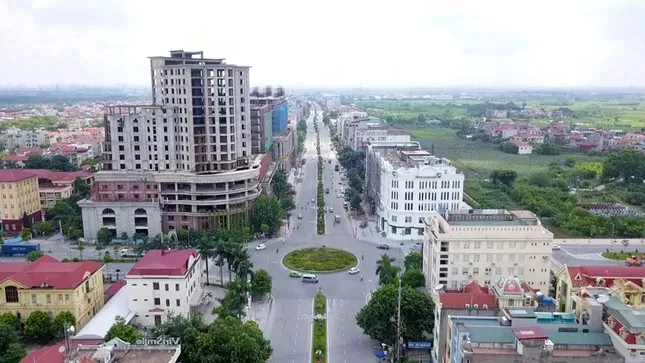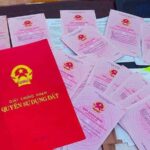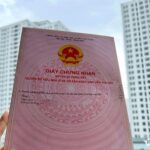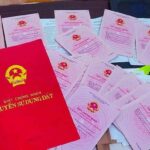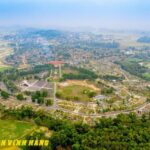Provincial level takes charge of complex and large-scale administrative procedures
Starting July 1st, the administrative system in the field of land will officially operate under a new decentralized and delegated model.
The Ministry of Agriculture and Environment has just issued Decision 2304/QD-BNNMT announcing administrative procedures in the land sector within the scope of its state management function.
Among these, 48 procedures are amended, supplemented, or replaced within the management scope of the Ministry of Agriculture and Environment, including: 2 central-level procedures; 32 provincial-level procedures; and 14 commune-level procedures.
Accordingly, the 32 procedures delegated to the provincial level mainly involve complex procedures related to land use rights of organizations, investment projects, or specific legal factors.
A series of procedures related to land registration are carried out at the provincial level, such as: individuals using land to establish private enterprises; transfer, inheritance, contribution of capital, lease, or handling of assets attached to land in civil and commercial transactions; changing information of land users; changing land use purpose without permission; and handling the results of judgments, enforcement decisions, or land disputes.
In the field of land use certificate (LUC) issuance, the provincial level handles many special cases, including: issuing LUCs for land plots with increased area due to boundary adjustment; re-granting or replacing lost LUCs; revoking incorrectly issued LUCs; issuing LUCs for transferees who have not completed procedures before August 1, 2024; or issuing LUCs for cases of land use for wrong purposes before 2014.
Additionally, the provincial level is also responsible for procedures related to land allocation, land leasing, land use purpose conversion, especially in projects that do not go through auctions or have large investment scales. The authority to adjust decisions related to errors in boundaries, area, or allocation of sea areas for land reclamation also belongs to the provincial level.
Functions such as split/merge of land plots, first-time land registration, dispute resolution, provision of land data, debt write-off of land use levies, and registration of assets attached to land in real estate projects are also carried out at the provincial level to ensure unity and high accuracy in management.
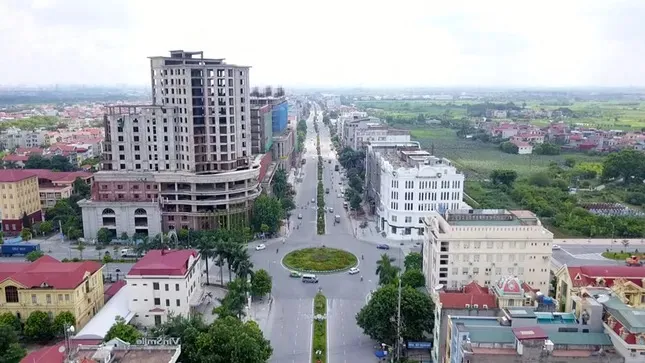
The administrative procedures that are amended, supplemented, or replaced fall within the management scope of the Ministry of Agriculture and Environment, including 2 central-level procedures, 32 provincial-level procedures, and 14 commune-level procedures. Illustration: IT.
Commune level takes charge of 14 procedures that are close to people and practical
In parallel with the decentralization to the provincial level, the Ministry of Agriculture and Environment also delegates 14 land administrative procedures to the commune level to shorten the processing time for regular tasks that are close to the people.
Among them, 5 procedures are related to registration and certificate issuance, including: redetermining the area of residential land that was granted a certificate before July 1, 2004; rectifying certificates with errors; revoking and re-granting incorrectly issued certificates; registering and granting certificates for the first time to organizations currently using the land; and granting certificates to households, individuals, community of residents, or overseas Vietnamese of Vietnamese origin.
Regarding land allocation and lease and land use purpose conversion, the commune level carries out 5 procedures: allocating and leasing land without auction; converting the form of land allocation/lease; adjusting decisions on land allocation and lease when there are changes in legal basis or boundaries and area; and allocating residential land without auction to certain priority groups such as civil servants, teachers, and medical staff in difficult areas, and permanent residents in communes without residential land.
Notably, the remaining 4 procedures reflect a role that is close to the people, such as: donating land use rights to the State or the community; using land for multiple purposes; resolving land disputes within the competence of the Chairman of the Commune People’s Committee; and organizing mediation of land disputes at the grassroots level.
The administrative procedures announced in this Decision are stipulated in Decree No. 151/2025/ND-CP on the determination of local government authority at two levels, decentralization, and delegation in the field of land; Decree No. 131/2025/ND-CP stipulating the determination of local government authority at two levels in the field of state management of the Ministry of Agriculture and Environment; and Decree No. 118/2025/ND-CP stipulating the implementation of administrative procedures according to the one-door and one-door-linked mechanism at the One-Door Division and the National Public Service Portal.
The New Red Book Rules: 4 Key Changes Effective July 1st That Every Homeowner Needs to Know
“Simplifying the Red Book Process: Unraveling the Four New Regulations Effective from July 1st.
As we approach the implementation date of new land regulations, it is crucial for citizens to understand the changes. These regulations, effective from July 1st, streamline the process of obtaining a Red Book, especially with the elimination of the district-level approval. Get informed and stay ahead to ensure a smooth and legal journey in the realm of land ownership.”
A Leading Cemetery Park Developer Receives 38 Hectares of Land in Ba Vi, Hanoi
“The Ao Vua Joint Stock Company has been entrusted by the Hanoi People’s Committee with over 39 hectares of land for the development of the Vinh Hang Expanded Cemetery Park project, phase 2. With this significant allocation, the company is poised to create a serene and respectful final resting place for generations to come.”

